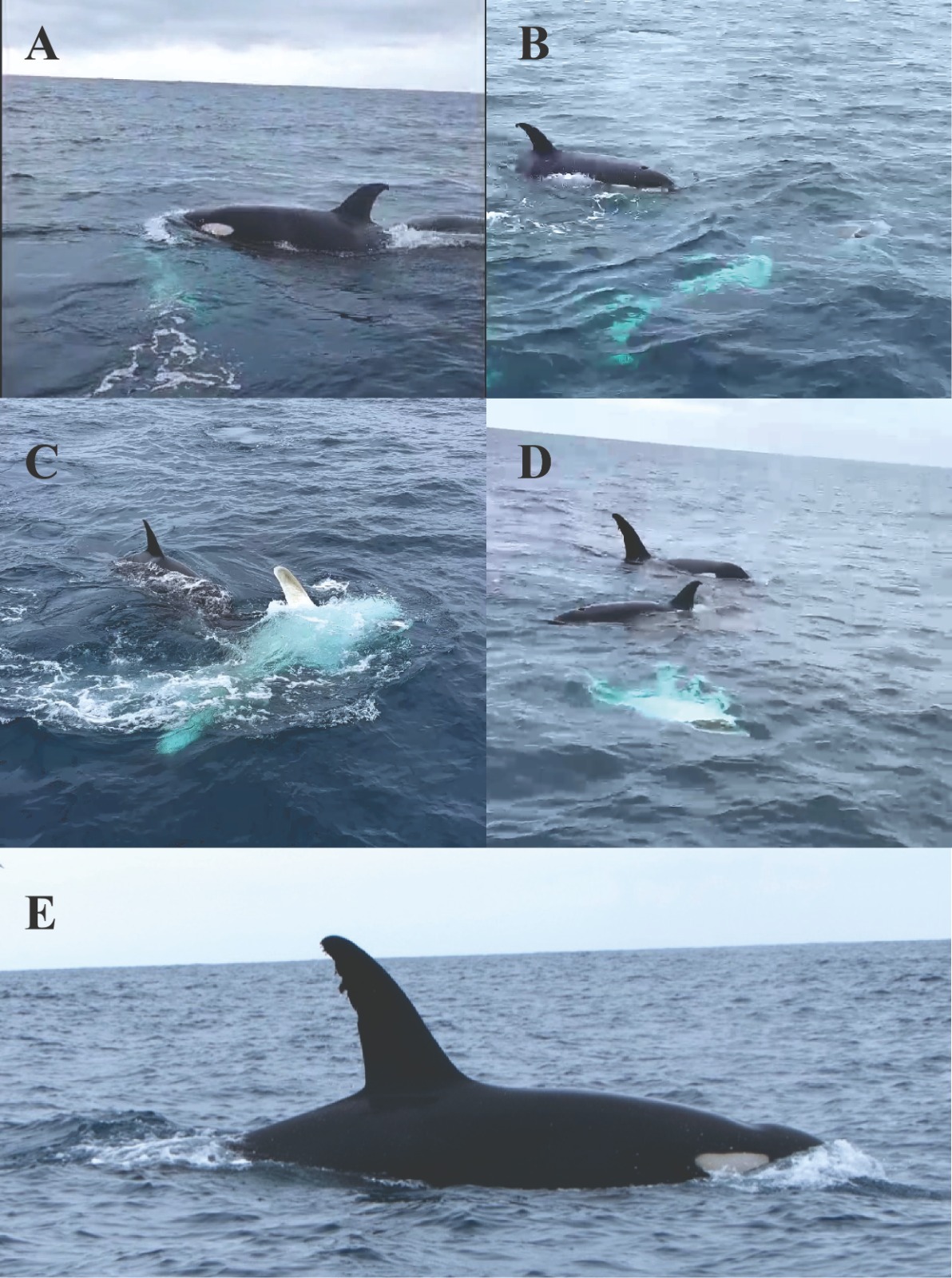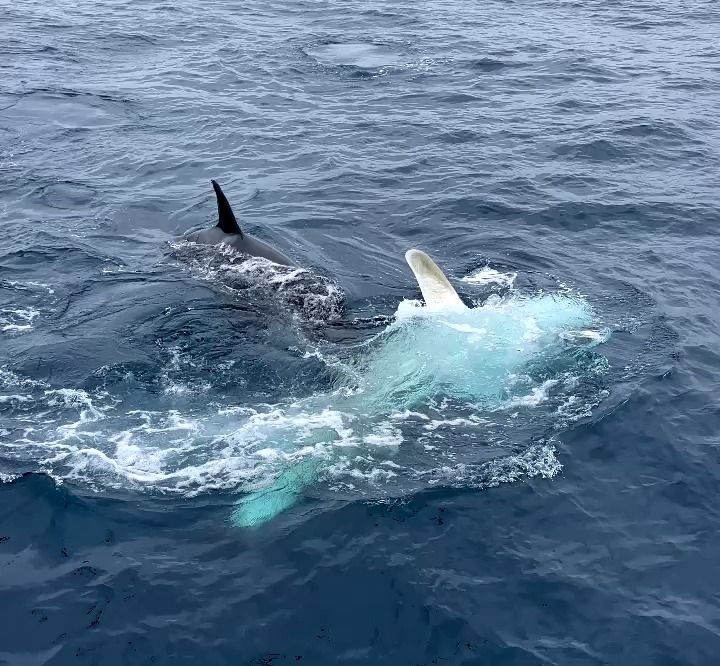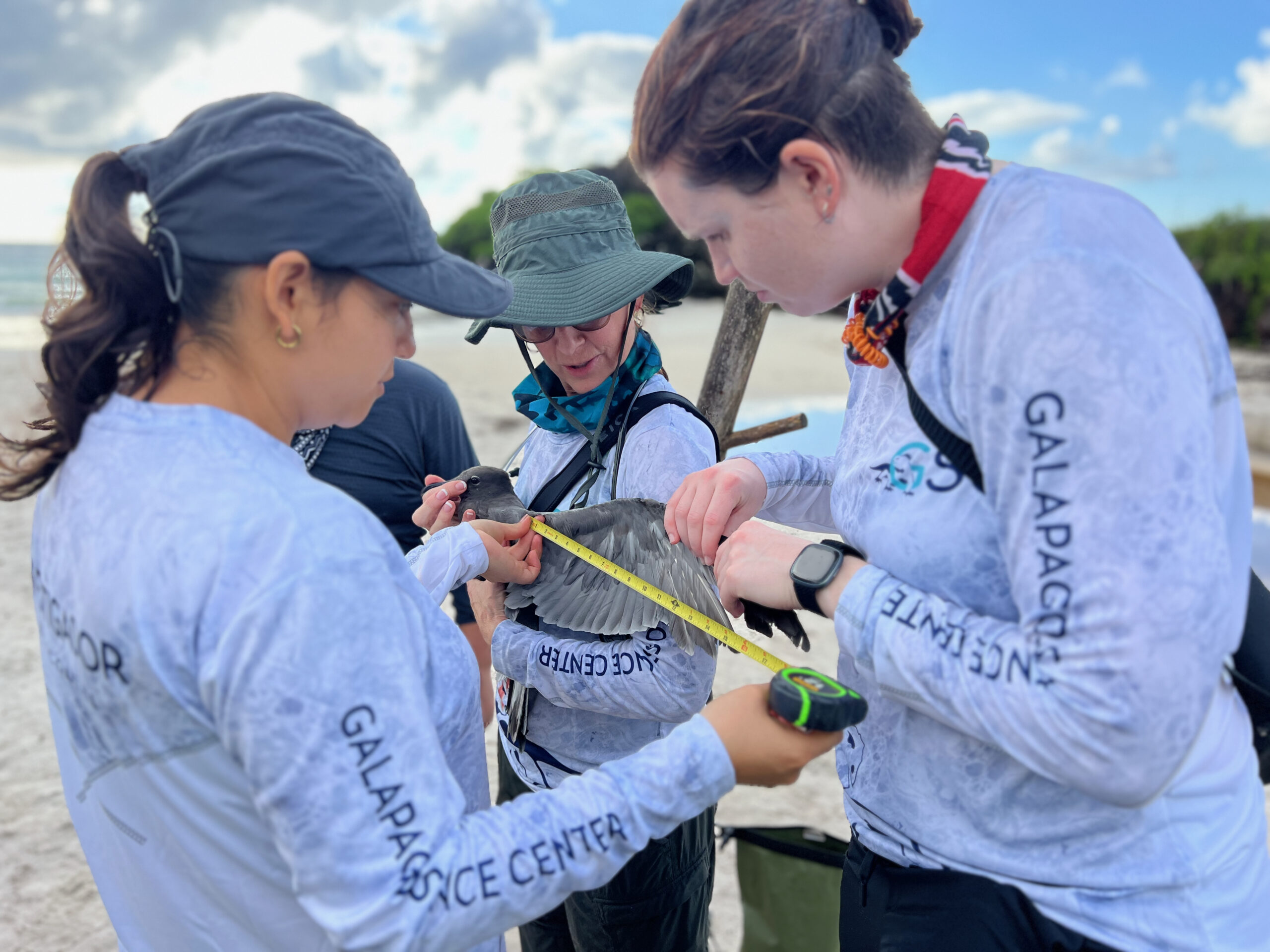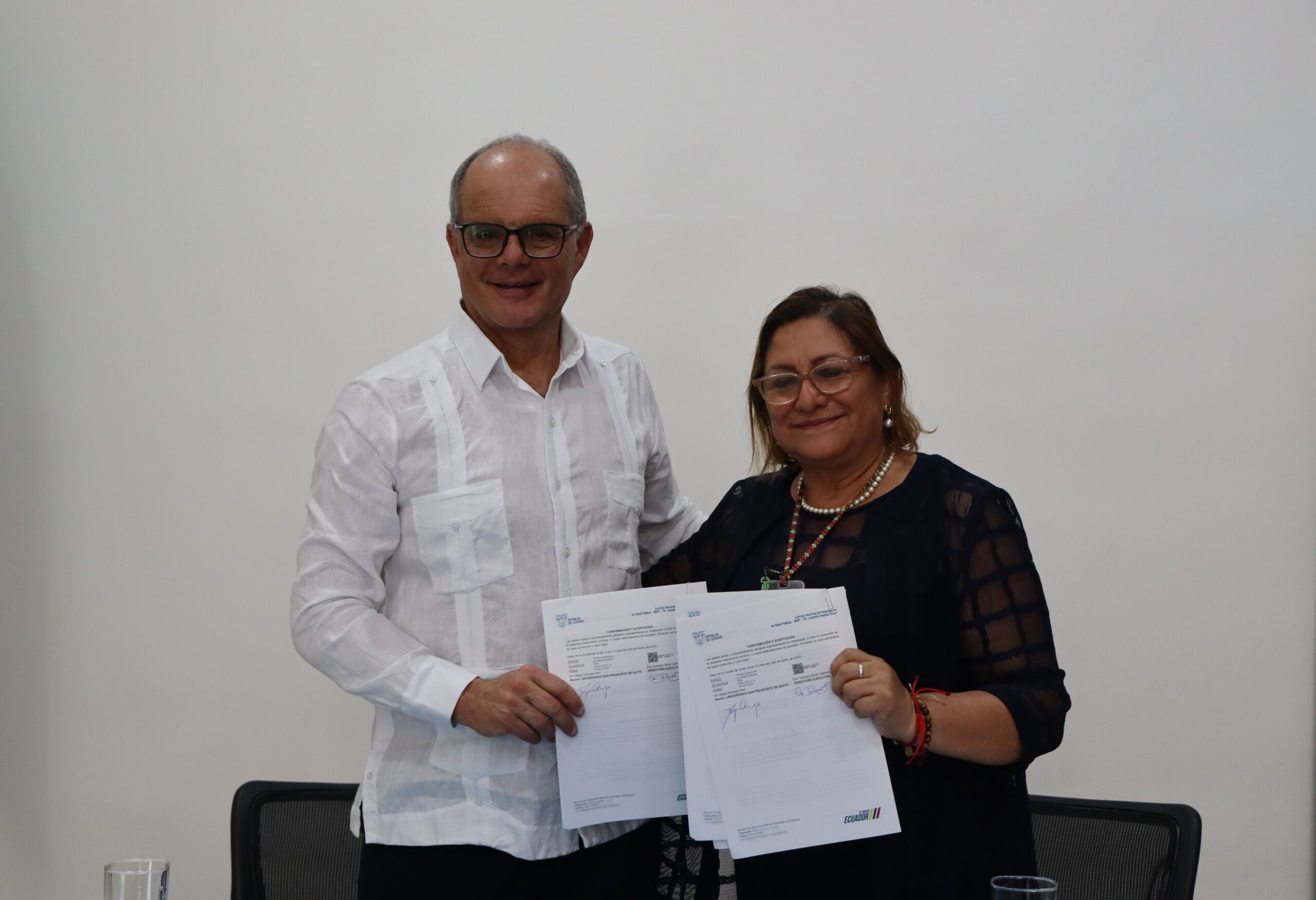Killer whales (Orcinus orca) are known as one of the ocean’s most versatile predators, yet their behavior in tropical waters remains a mystery. This study documents, for the first time, orca attacks on whale sharks (Rhincodon typus) in Ecuador and Panama, providing valuable insights into their hunting strategies in the Eastern Tropical Pacific (ETP). Understanding these events is key to expanding knowledge about this predator’s dynamics in the region.
The recorded attacks took place in July 2022 near Coiba Island, Panama, and in December 2023 in Machalilla National Park, Ecuador. In both cases, orca groups displayed similar behaviors, such as striking the sharks on the belly and fins and submerging them until they stopped resisting. These patterns align with previous observations in the Gulf of California, suggesting that this may be a learned hunting strategy shared among different orca populations.

Photos: Sequence of whale shark predation by killer whales in the coastal waters of Ecuador. (A) Killer whale swimming alongside the whale shark. (B) Killer whales biting the whale shark. (C) Whale shark’s ventral area exposed at the surface as a killer whale pushes it upward. (D) Killer whales approaching to submerge the whale shark into the depths. (E) Male individuals identified by their dorsal fin.
The study also identified a connection between orcas observed off the Ecuadorian coast and the Galápagos Islands through comparisons with photographic catalogs. A male recorded in Machalilla was spotted months later in the northern part of Galápagos National Park, reinforcing the theory that these populations are interconnected and share feeding grounds.
These findings highlight the need for further research on orcas in the ETP, particularly through image analysis and biological sampling, to better understand their migration routes and ecological role. The collected data will contribute to the conservation of this species and the balance of the marine ecosystem in the region.
Read the full article here:https://doi.org/10.1111/mms.70007open_in_new






